Web Literacy Basics | Web Chef
CC-BY-SA by Mozilla and and inspired by Creative Commons and P2PU.
60 minutes
Learners will create a webpage for a teaching "recipe," learning web literacy skills like connect, open practice, remix, and share.
Follow this link to localized versions of the activity.
Web Literacy Skills
-
Write
Remix -
Participate
Connect Open Practice Share
21st Century Skills
Learning Objectives
- Attribute openly licensed content
- Use constructive criticism in a group or community setting
- Create a web resource that guides peers to complete a task
Audience
- 13+
- Beginner web users
Materials
- Pens and paper
- Web-enabled devices: mobile or laptop
- Optional: Printed Web Chef Recipe template
-
Preparation
Learning Progression
In this lesson, your learners will:
- Teach a partner how to do something simple.
- Create a recipe for a more complex task.
- Remix that recipe in a Thimble project they can share with others.
- Share their recipes with the whole group.
You should...
Do the activity on your own to become familiar with it.
Print the Web Chef Recipe template for your learners, if you won't have access to the web.
-
Teaching in Pairs
15 minutesBegin the session by explaining that everyone has something to learn and to teach and that one of the benefits of the open web is that it's easy to share your knowledge with others.
Have learners team up into pairs. Invite the learners to think briefly about a simple skill they can share with their partner. Some examples include: a new dance, a more efficient way to tie your shoe, or how to say something in another language.
For five minutes, the first partner teaches their skill to their partner. Then switch. After both partners have gone, gather back as a large group. Ask a few pairs to briefly explain what their partner taught them. Encourage them to reflect on what made instructions easy to understand and memorable.
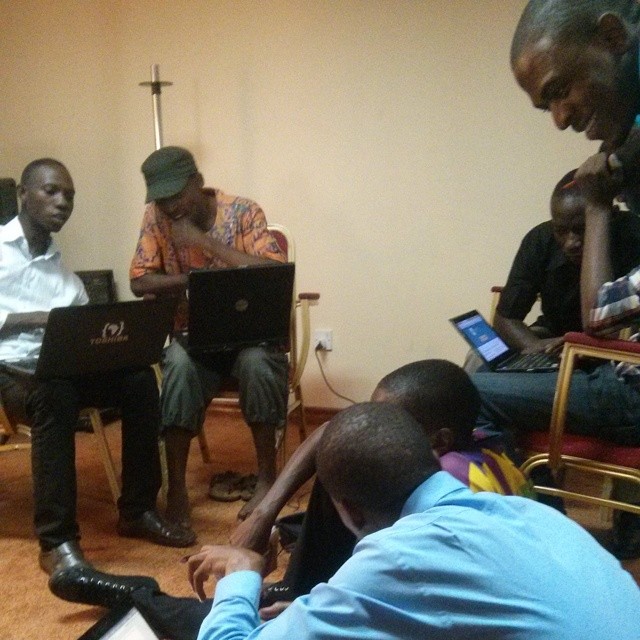
-
Write a Recipe
10 minutesNow explain how good instructions are like recipes in a cookbook. Chefs write recipes to share with other chefs and also to remind themselves about how to do something.
In the same pairs, invite your learners to write a brief summary of the steps required to learn their skill. Encourage the pairs to review each others' recipes and to give constructive feedback to make the recipes better.
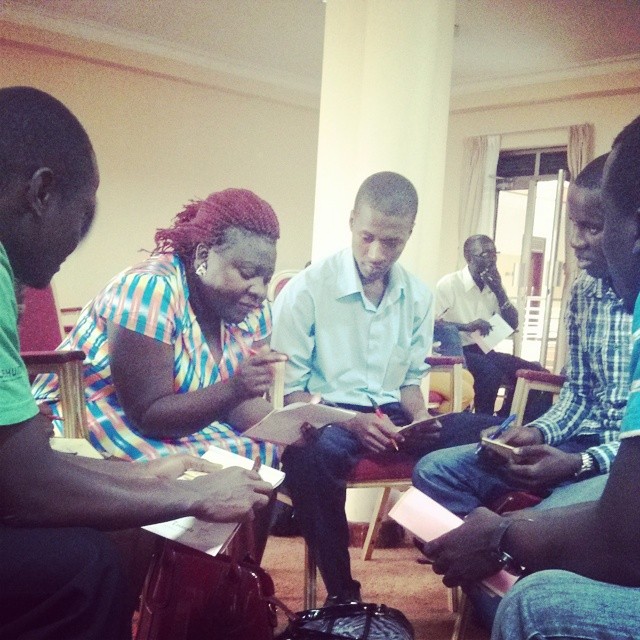
-
Gather Your Ingredients
10 minutesIntroduce the idea that chefs can use the web to better illustrate their recipes. Invite the pairs to search the web to find openly licensed content that would bring their recipes to life.
To easily find openly licensed content, try using these services:
Explain that chefs acknowledge their inspiration and give attribution to others. That's part of the culture of sharing openly.
Use the Web Chef recipe template, to have the pairs sequence their recipe's steps and attribute the web content. If you have low-connectivity, just use pen and paper to write your recipe and show what additional resources would be added.
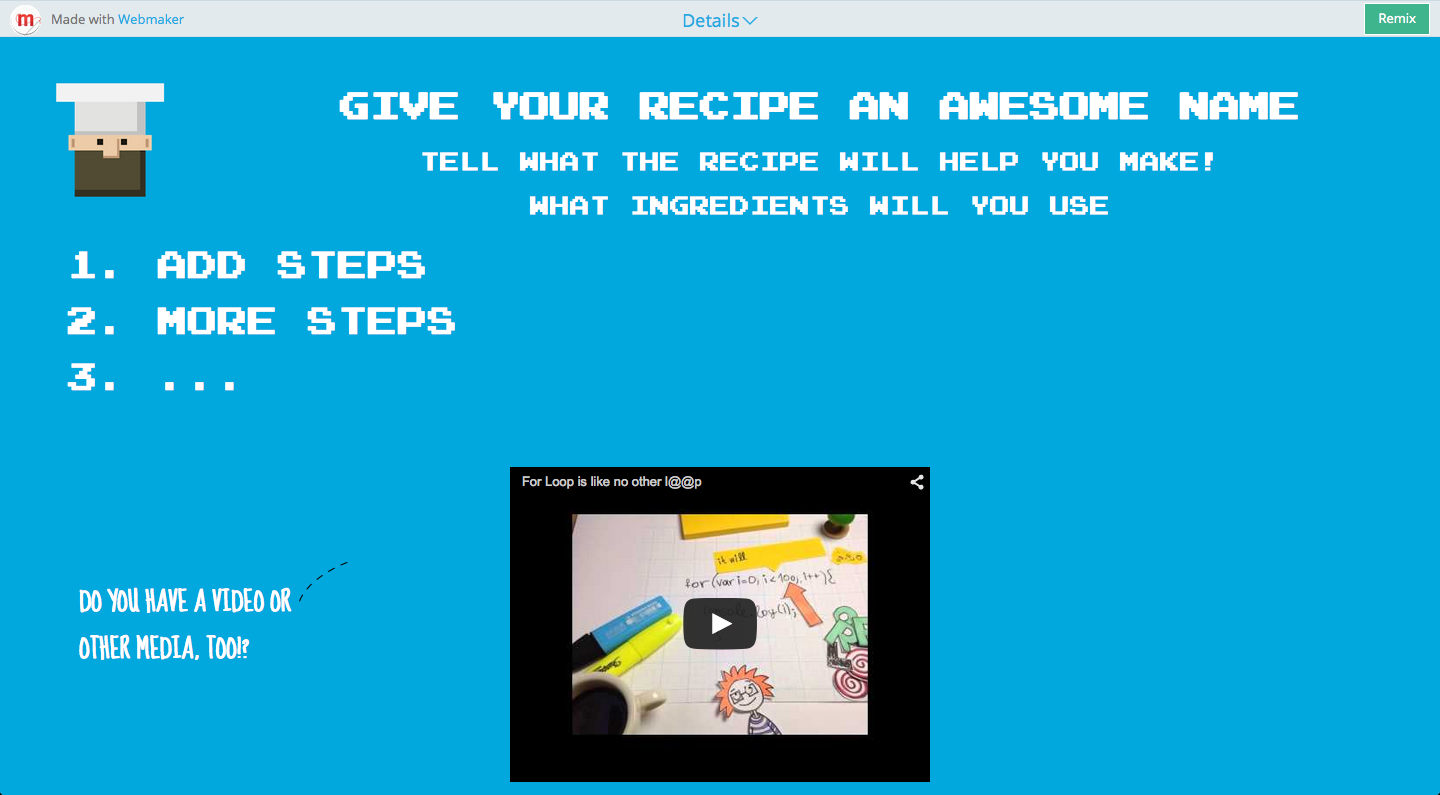
If time permits, your learners can also make their own web content. Think about taking photos, making a quick video or writing a new text as part of the recipe. Bonus if your learners create these resources on their mobile phones, using services like Flickr, Wikimedia Commons, SoundCloud and YouTube to make something they can post to the web and easily add an open license to.
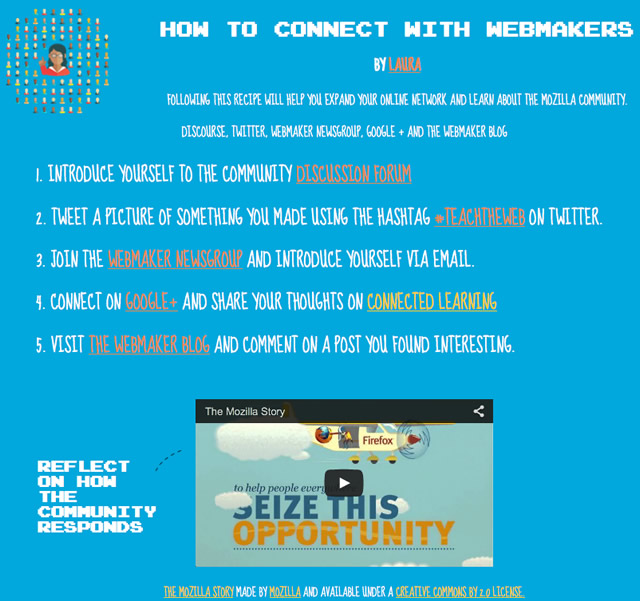
-
Web Chef Cooking Show
10 minutesGather all the recipes and everyone back into a big group. Now all the Web Chefs are ready for a cooking show! Assign two pairs of chefs to complete a recipe from another group. The two pairs race each other to see who can successfully follow the recipe fastest.
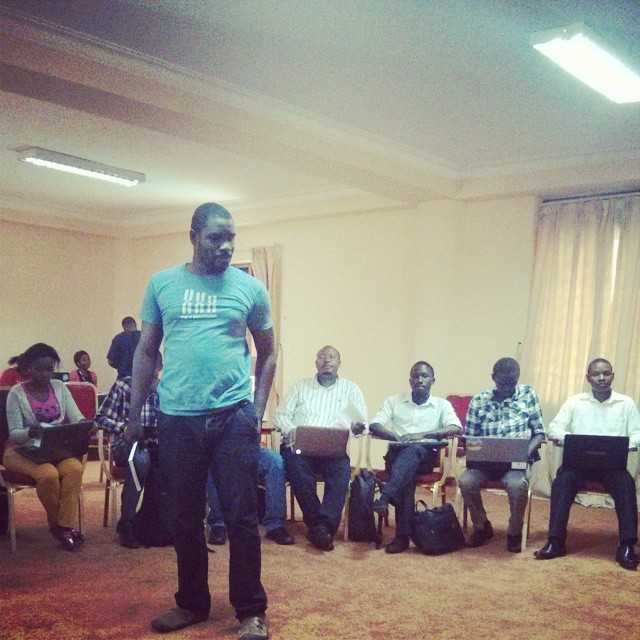
Make it more challenging by having pairs complete the recipe blindfolded, or while hopping on one leg, etc.
After a few rounds, reflect on what made good recipes. What other information would help? Did anyone modify a recipe as they did it? If so, why and how could you share that modification with other chefs?